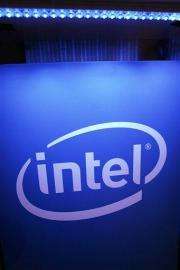Surprise in Intel 1Q: Corporate PC spending up (Update)

(AP) -- Intel Corp. executives say the chip maker's first-quarter results revealed a surprising and encouraging trend: Companies are finally starting to upgrade their workers' laptops.
That's important because corporate spending on personal computers has been one of the last parts of the technology world to thaw out as companies unlock budgets frozen during the recession.
But there's a catch, according to Intel CEO Paul Otellini: Many companies are buying PCs again because it's simply less expensive than hanging on to older machines that need frequent maintenance. He said many customers were buying computers with older Intel chips, which are less profitable for the company than the newer products.
"I'm still not going to go out on a limb, and our customers aren't going to go out on a limb, and say there's a corporate refresh snapback cycle," he said. "People are buying things to replace older machines because it's just cheaper."
Still, that dynamic was key in helping Intel's net income nearly quadruple in the latest quarter when compared with last year.
Intel became the first major technology company to report earnings for the first quarter when it said after the market closed Tuesday that it earned $2.4 billion, or 43 cents per share, in the first three months of 2009.
Analysts polled by Thomson Reuters were expecting profit of 38 cents per share.
In the same period last year, Intel earned $629 million, or 11 cents per share. At the time Intel was muddling through the recession, but Otellini predicted that personal computer sales had "bottomed out" - an early forecast that proved true.
Intel's revenue in the latest period jumped 44 percent to $10.3 billion, ahead of analysts' forecast for $9.8 billion.
The company also raised its forecast for a key performance measurement. Intel now predicts a gross profit margin of 62 percent to 66 percent of revenue in 2010, up from its previous guidance of 58 percent to 64 percent of revenue.
And Intel said it expects to hire about 1,000 people this year worldwide. Intel currently has 79,900 employees, down from 82,500 a year ago.
Intel shares rose 23 cents, 1 percent, to close at $22.77 before the earnings report. In after-hours trading the shares jumped 90 cents, nearly 4 percent, to $23.67.
Intel's results could be an early preview of a healthy quarter for the technology industry, because many kinds of suppliers would benefit if large companies are beginning to spend more money on computers and other equipment.
During the worst of the recession, the computer industry was propped up by consumer spending, mostly on heavily discounted computers and "netbooks" - little laptops used for surfing the Internet. Still, the downturn was the PC industry's worst in nearly a decade.
Late last year, corporations picked up their spending on their essential back-end computers. Sales of computer servers - the behind-the-scenes computers that run Web sites and crunch data for companies - rose at the two biggest server makers, Hewlett-Packard Co. and IBM Corp.
That trend has helped lift Intel and rival Advanced Micro Devices Inc. because server processors are among their most profitable products.
AMD reports its first-quarter numbers Thursday.
©2010 The Associated Press. All rights reserved. This material may not be published, broadcast, rewritten or redistributed.


















